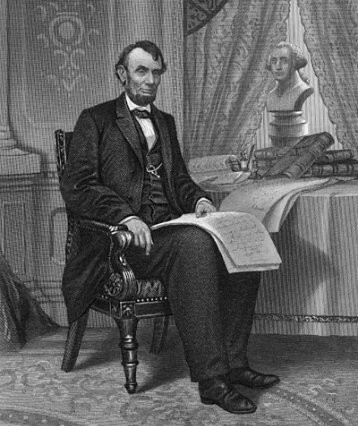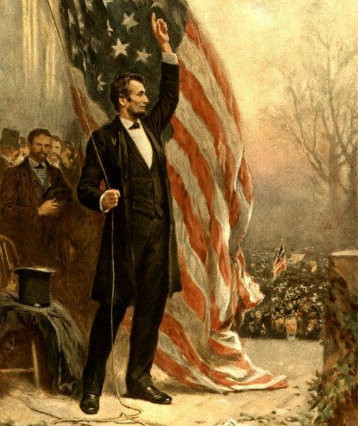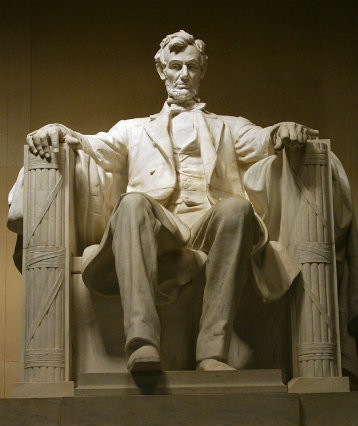A. Perpetuating Our Political Institutions: Lincoln’s Lyceum Address
1. Lincoln begins by contrasting the task of founding to the task of perpetuation. What do we learn from this early speech about Lincoln’s view of the Founding Fathers?
2. What threats to self-government does Lincoln foresee?
3. After giving his diagnosis of the problem of lawlessness, Lincoln proposes a remedy. What is his solution?
3. Does the need for such a solution imply that the original founding was somehow defective or incomplete?
4. What is “reverence for the laws”? Does it differ from fear of punishment?
5. How does Lincoln’s call for reverence comport with his closing attack on passion? Is reverence closer to reason than to passion?
6. Lincoln warns his listeners of the threat of a preeminent man who belongs to “the family of the lion, or the tribe of the eagle.” Is Lincoln himself such a preeminent man? Why should Lincoln remain true to the people, if leonine glory is within his reach? Why should he settle for custodial work in the house of the fathers?
WATCH: Perpetuating Our Political Institutions: Lincoln’s Lyceum Address
B. Abraham Lincoln and George Washington
1. In his Farewell Speech, Lincoln says that he faces a task “greater than that which rested upon Washington.” What were their respective tasks?
2. What does Lincoln mean by calling his task “greater”?
3. Is Lincoln right that his task is greater than Washington’s?
WATCH: Abraham Lincoln and George Washington
C. Lincoln and the Gettysburg Address
1. In the Declaration of Independence, human equality is called a “self-evident truth.” Do you see any significance in the fact that Lincoln refers to equality as a proposition to which the nation is dedicated?
2. What is Lincoln’s understanding of the founding principle of equality? Is it the same as Jefferson’s or not?
3. What does Lincoln mean by this phrase “a new birth of freedom”? How does it relate to the description of the new nation in the opening paragraph, where we were said to have been “conceived in Liberty”? Are we to understand the “new birth of freedom” as a culmination of the nation’s founding trajectory? Or, is it better understood as a departure from or a correction of the nation’s founding? Is Abraham Lincoln re-founding the nation in this moment?
4. How does the new birth of freedom relate to the argument of the Lyceum Address about the requirements for the perpetuation of our republic?
WATCH: Lincoln and the Gettysburg Address
D. Lincoln’s “Sacred Effort”: The Second Inaugural
1. Lincoln himself seemed to believe that the Second Inaugural was a greater speech even than the Gettysburg Address. Frederick Douglass seconded that opinion. Douglass met Lincoln at the reception afterwards. When Lincoln greeted him he said “there is no man in the country whose opinion I value more than yours. I want to know what you think of it?” Douglass replied “Mr. Lincoln, that was a sacred effort.” That description might be the best way into the speech. What was Lincoln’s effort? What was he trying to achieve with this speech? And what was sacred about it?
2. What do you make of Lincoln’s use of powerfully religious language, in both speeches, but more explicitly in the Second Inaugural?
3. In the Lyceum Address, Lincoln argues that the wounds of the Revolutionary generation are helpful in creating a sense of national unity. But once those wounds are healed and especially once the men bearing those wounds are gone, the nation needs new sources of unity. By contrast, why in the Second Inaugural, does Lincoln say we are called to bind up the nation’s wounds?
WATCH: Lincoln’s “Sacred Effort”: The Second Inaugural






Post a Comment